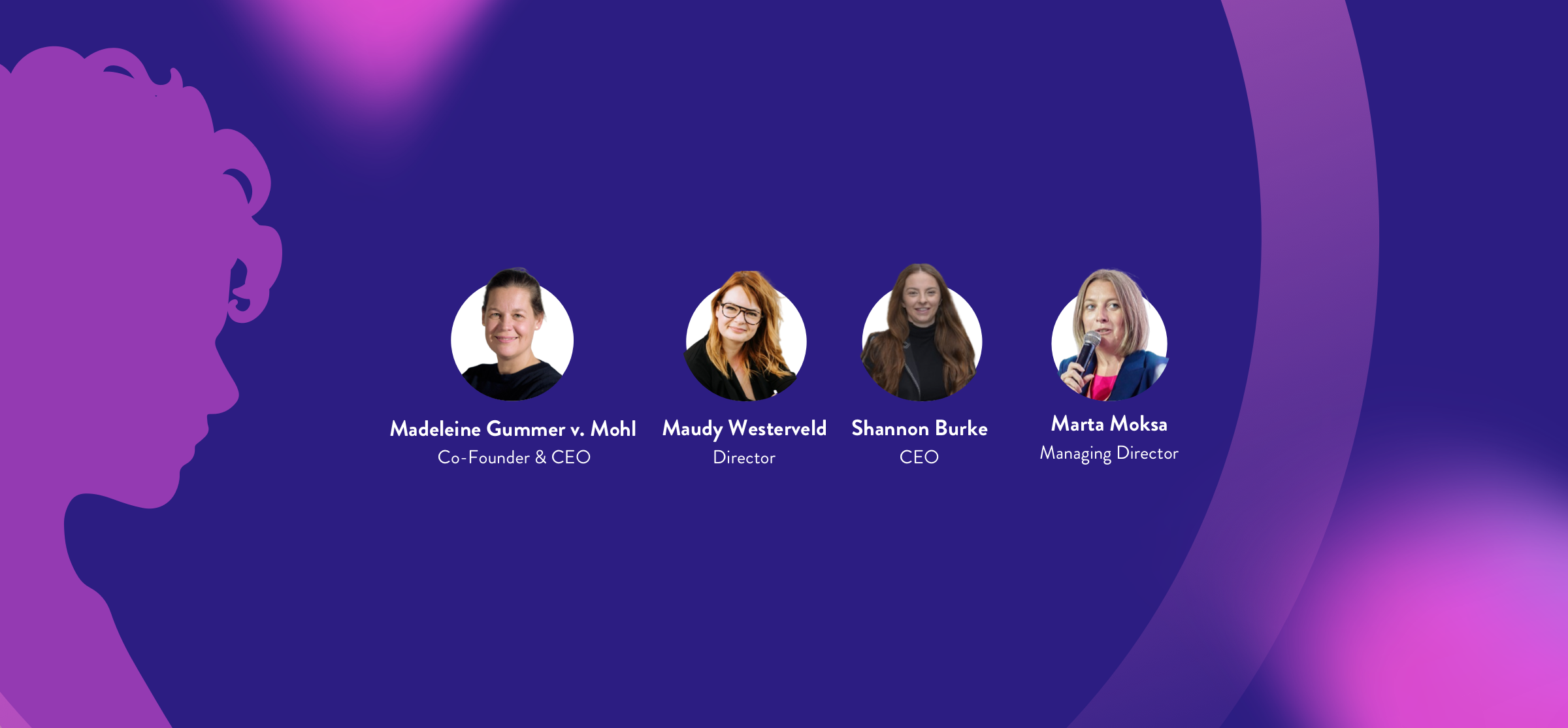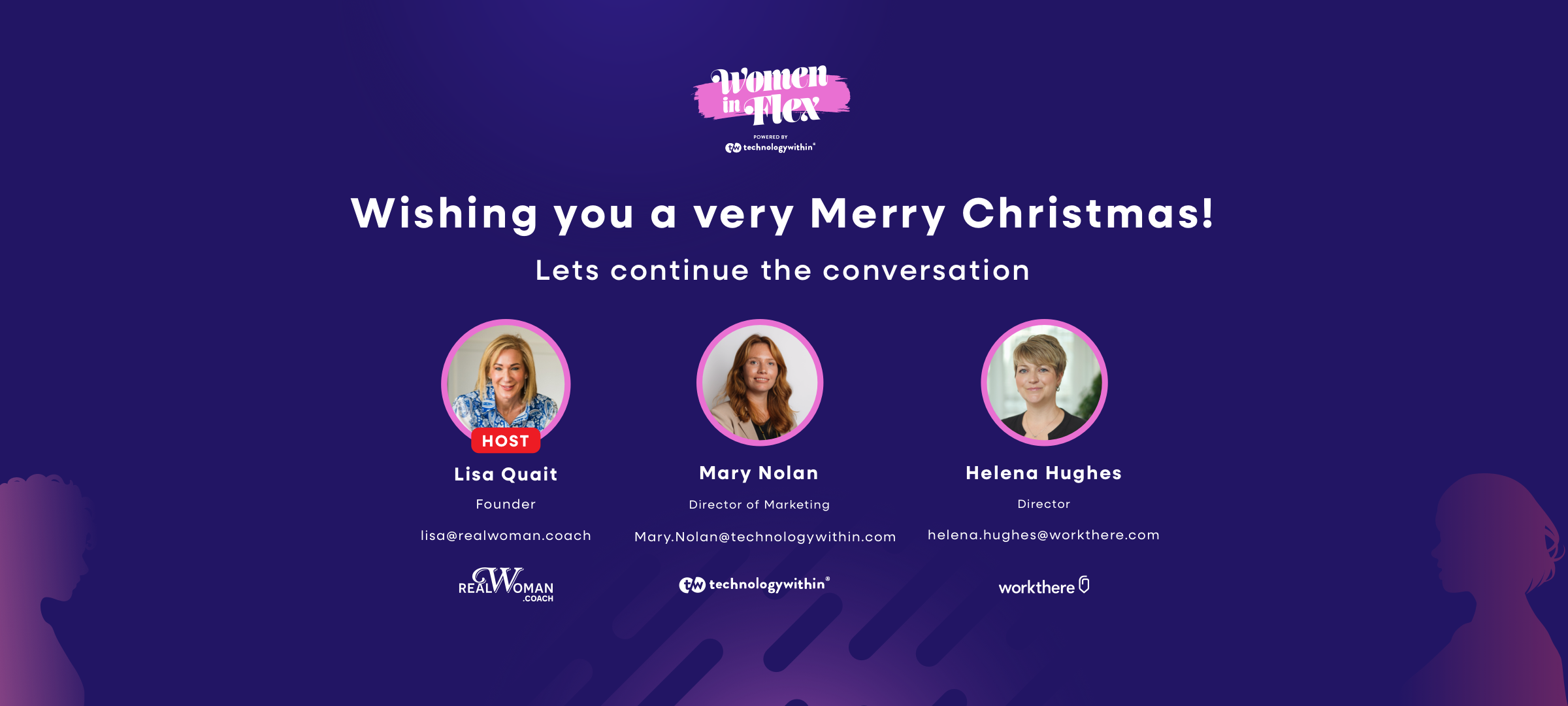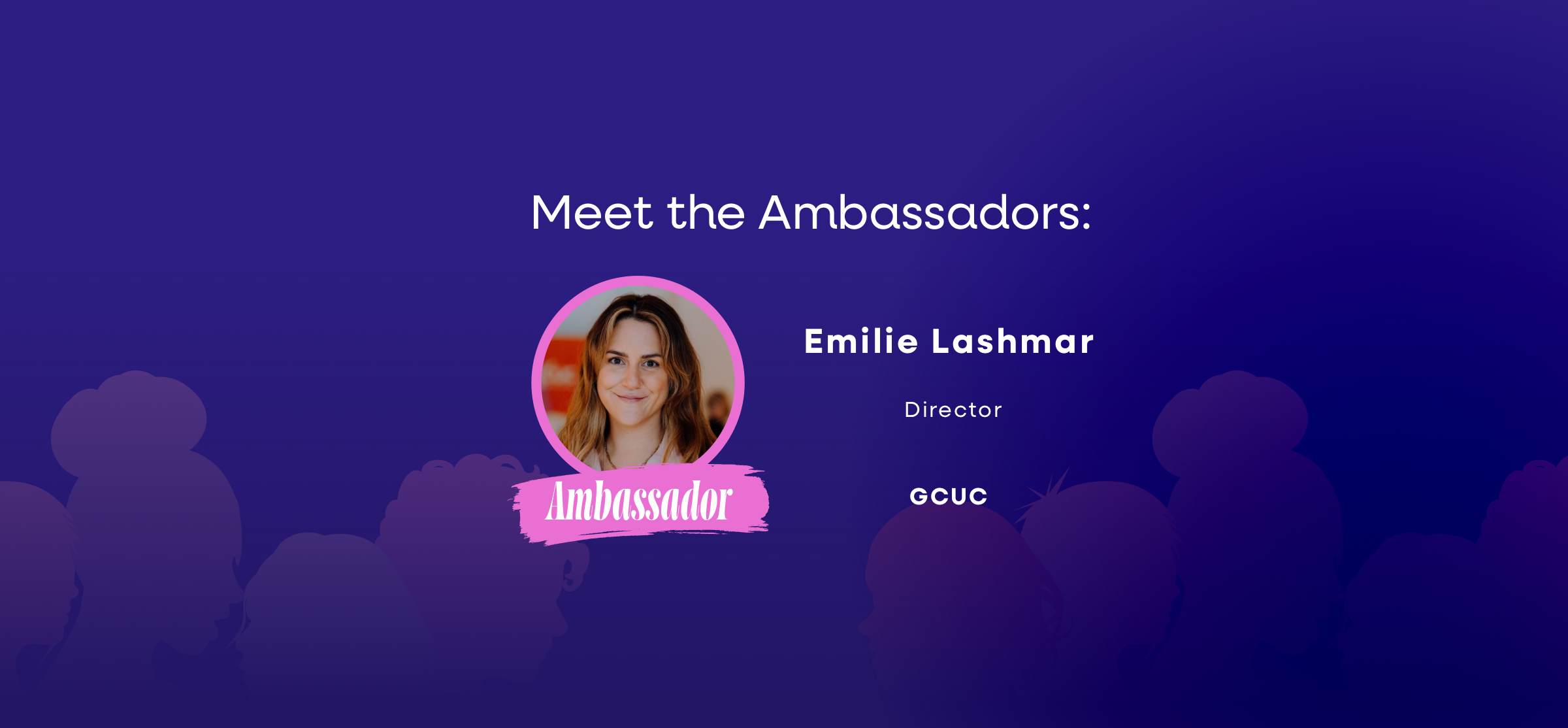
The flexible workspace industry’s rapid evolution brings many opportunities for women to grow their careers in the sector. Women in Flex, an initiative led by technologywithin, aims to empower and amplify the voices of women working in the flex sector and inspire the next generation of leaders.
As part of this initiative, Charlotte Udy, Projects Administrator, technologywithin, led a webinar discussion around career growth and tips to succeed in flex. Four panellists joined to share their career journeys in the flex sector: Maudy Westerveld, Director, EBC Amsterdam, Shannon Burke, CEO, managed, Marta Moksa, Managing Director, O4, and Madeleine Gummer v.Mohl, Co-founder & CEO, betahaus.
Covering all bases, from non-linear career paths to overcoming systemic barriers, and the power of networking and mentorship, here are the key takeaways from this open and honest discussion.
Overcoming unique challenges, barriers, and stereotypes
The panellists have all built impressive careers in the flexible workspace industry. However, they could all recount times when they felt patronised by their male counterparts. Their experiences ranged from receiving condescending comments for having a youthful appearance to simply not being taken seriously. Madeleine Gummer v.Mohl shared a time when an investor commented: “You’re the CEO? I thought you were just making the coffee.”
In 2009, Betahaus launched as an office for freelancers writing about East German politics, a project Madeleine was part of before she launched the workspace concept for the community. When she shared her business plans with two male family members, Madeleine was disregarded as they questioned how she would be able to start a family. But, she has gone on to achieve both, and firmly believes that “you can have a family and a career.” Despite this, many mothers compromise their career progression to become the default caregiver. A decade after their first child is born, women are 20% less likely to remain in work.
In the five years since Shannon Burke made the switch from the film industry to the flex sector, she has witnessed the flexible workspace industry evolve from having a “daunting” lack of female representation into a more female-led industry. Across the board, leadership roles have historically been dominated by men. But, times are slowly changing, and women now hold 35% of leadership positions at FTSE350 companies.
Why doing the ‘inner work’ matters
The industry may have become slightly more gender balanced and inclusive, but ‘breaking into leadership roles’ was voted the audience’s biggest challenge, signifying that there is still work to be done. Shannon comments that people still act surprised to see women hold senior leadership positions during negotiations. Meanwhile, Marta Moksa says, “Men have finally accepted that we have this place at the table.”
Women respond differently during negotiations and tend to be more balanced, says Shannon, who has been learning to tap into her female energy and use it as a “skill and super power.” She attributes her authenticity to the many hours of self-development and reflection spent at the beginning of her career, commenting how “it was an inner journey.” Similarly, the inner work Maudy Westerveld carried out has influenced her growth over 14 years of working at EBC Amsterdam.
Although women can portray confidence when negotiating on behalf of a company or job, we can often falter in being our own advocate. In fact, 75% of women in executive roles experience impostor syndrome at some point in their careers. “If we don’t start to think of ourselves as worthy, it will always be a problem,” says Marta. When you’re coming up to a promotion or salary negotiation, she recommends writing a list of the things that matter to you, and on the reverse of that piece of paper, write what you think matters to the person you’re negotiating with. An understanding of both sides will help you better appreciate your self-worth and advocate for yourself during negotiations.
Mentorship and the power of networking
While being your own cheerleader is an important step towards career growth, there is a huge benefit in having someone else champion your success. Shannon is a believer in mentorship and currently works with two mentors – one on the business side, the other for holistic purposes. She recommends finding someone who inspires you, makes you feel comfortable, and is someone you can trust. Women with mentors are 10% more likely to achieve promotions, lead successful projects, and improve processes.
From learning from your peers during meetings to listening to podcasts, there are many ways you can carry out self-development work. Networking is an important part of the day-to-day in flexible workspaces, but while networking comes naturally to Madeleine, her challenge has been encouraging others to participate. Nonetheless, her foundation is ‘creating an environment where everyone feels safe.’
For Marta, “education is the best way to connect,” recommending attendance at industry events, such as Coworking Europe and GCUC. These events weave networking into the agenda, so it doesn’t feel forced or leave you speaking to people you already know (although this can help to build existing relationships).
Maudy Westerveld used to dislike networking events until she shifted her mindset and began attending events across Amsterdam, even going alone. Her top tips include: arrive at events early so other attendees think you’re part of the organising team and speak to you, and introduce yourself to organisers who will make you feel more comfortable and may connect you to someone else in the room. She says: “Be consistent – if you find a group that really suits you, go.”
Professional vs. personal life – a balancing act
Coworking is a people-first business, relying on the ability to connect with others and work hard. Being a “people person” is essential to the job, stresses Madeleine. With eleven years at O4, Marta recommends having patience, building relationships, and being agile as key skills for thriving in the flex industry.
Although displaying empathy is a core trait for succeeding in flex, the demands in such a people-facing role can leave you with a cup half empty at times. Last year, 80% of workers experienced burnout. It’s an issue that women can be particularly vulnerable to, for reasons including having a ‘second job’ – the responsibility for household tasks, affecting 79% of women across Europe, compared with just 34% of men.
Although Marta is currently on sabbatical from O4 to prevent burning out, she continues to attend courses and events for her self-development. Her advice: ‘If you feel like something is going on in your head, consider taking a break…and make time to do something for yourself.’ Likewise, Maudy and Madeleine have taken time away from work in the past to prioritise their wellbeing. Through these experiences, they’ve both learned to put boundaries in place and prioritise their needs at times when it matters.
Top career advice from women in flex
As a final takeaway, Charlotte asked the speakers to share one piece of advice they swear by:
- Shannon Burke: “Invest in yourself before anything else. Knowledge will make you more money than any investment, and lack of knowledge will cost you.”
- Madeleine Gummer v.Mohl: “If you choose someone to work with, keep in mind you’re working with the whole person,” and “Learn your numbers.”
- Marta Moksa: “Keep learning, and surround yourself with wise people,” and “Don’t compare yourself to others, be yourself, know your strengths. Own your growth.”
- Maudy Westerveld: “Give feedback to your team…Start speaking your mind earlier, and it becomes easier.”
Our four panellists shared some fantastic tips supporting women in the flexible workspace industry with career growth. Watch the webinar discussion to learn more, and keep in touch with our group and future Women in Flex events on WhatsApp.
Recent articles

Flex Office Industry – We Need to Talk About December

Meet the Ambassadors: Emilie Lashmar
